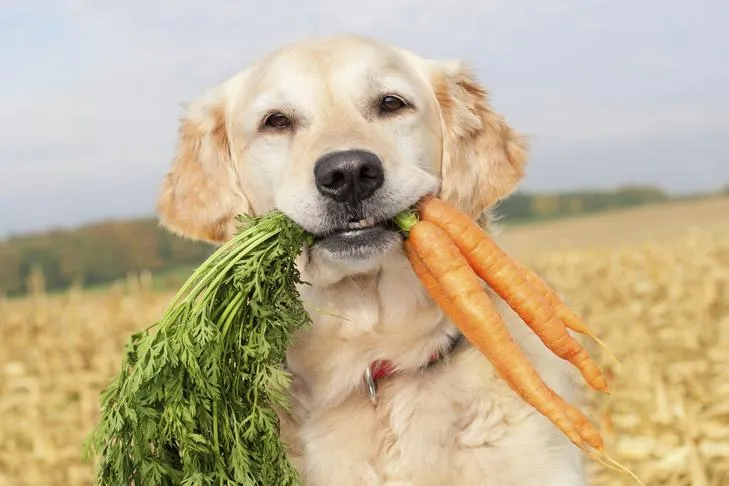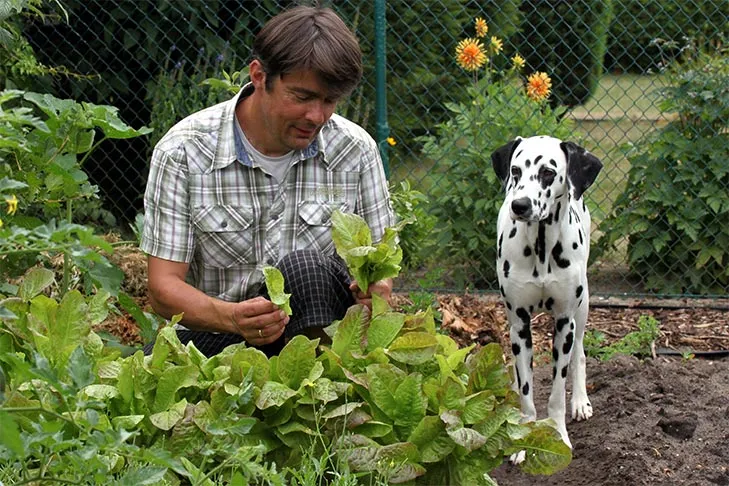It’s a common instinct for pet owners to want to share their meals with their beloved canine companions. After all, if a food is healthy for us, it must be safe for our dogs, right? Unfortunately, this isn’t always the case. While many human foods are perfectly acceptable for dogs, some vegetables can be detrimental to their health, and in severe instances, even life-threatening. Dogs possess a different digestive system than humans, making it crucial to understand What Vegetables Can Dogs Not Have.
As omnivores, dogs don’t strictly require fruits or vegetables in their diet. However, offering them dog-safe options as occasional treats can be a delightful way to supplement their nutrition. This guide will delve into the specifics of what vegetables can dogs not have, ensuring you can make informed decisions for your furry friend’s well-being and avoid potential health hazards. We’ll cover both the safe and the dangerous, providing a clear distinction to help you navigate your dog’s dietary needs. Remember, always consult with your veterinarian for personalized dietary advice for your dog, especially if they have any pre-existing health conditions.
The Importance of Knowing “What Vegetables Can Dogs Not Have”
Understanding the specific vegetables that are toxic or harmful to dogs is paramount for responsible pet ownership. While the allure of sharing fresh produce might be strong, the consequences of feeding the wrong items can range from mild digestive upset to severe poisoning. This knowledge empowers you to protect your dog from accidental ingestion of harmful substances, ensuring their safety and longevity. Regularly reviewing dietary guidelines and staying informed about potential risks is a key aspect of maintaining a healthy lifestyle for your canine companion.
Safe Vegetables for Dogs: A Healthy Treat Option
Many vegetables can be safely incorporated into your dog’s diet as occasional treats, providing essential vitamins, minerals, and fiber. When prepared correctly and offered in moderation, these options can enhance your dog’s overall health. Always ensure vegetables are plain, with no added seasonings, oils, or fats, which can be harmful.
Broccoli
Broccoli is a safe vegetable for dogs in small quantities, best served as an occasional treat. It’s rich in fiber and vitamin C and low in fat. However, raw florets contain isothiocyanates that can cause mild to severe gastric irritation in some dogs. Tough stalks have also been known to cause esophageal obstruction. Therefore, it’s preferable to offer cooked broccoli to mitigate these risks. You might also find broccoli-shaped dog chew toys that can satisfy your dog’s chewing instincts without the digestive concerns.
Brussels Sprouts
Brussels sprouts are packed with nutrients and antioxidants beneficial for both humans and dogs. However, they can cause significant gas if overfed. If your dog enjoys Brussels sprouts and you don’t mind the side effects, consider incorporating them into their diet cautiously. Some dehydrated dog foods include these nutrient-dense leafy greens.
Carrots
Carrots are an excellent low-calorie snack that is high in fiber and beta-carotene, which the body converts to vitamin A. The act of crunching on this vibrant root vegetable is also beneficial for your dog’s dental health. Carrots are a common ingredient in many dog foods and are found in numerous carrot dog treats.
 Golden Retriever holding carrots PK-Photos/Getty Images Plus via Getty Images
Golden Retriever holding carrots PK-Photos/Getty Images Plus via Getty Images
Celery
Celery provides vitamins A, B, and C, along with nutrients that support a healthy heart and may help fight cancer. Additionally, celery is known to freshen a dog’s breath. You can find celery dog chews that many dogs find enjoyable.
Green Beans
Whether chopped, steamed, raw, or canned, all types of green beans are safe for dogs as long as they are plain. Green beans are brimming with essential vitamins and minerals, fiber, and are low in calories. Opt for no-salt canned green beans to add to your dog’s food. Frozen green beans can also serve as fun enrichment snacks.
Peas
Green peas, snow peas, sugar snap peas, and garden or English peas are all acceptable for dogs to have in their bowl occasionally. Peas offer various vitamins, minerals, and are a good source of protein and fiber. You can feed your dog fresh or frozen peas, but avoid canned peas with added sodium.
Spinach
Dogs can eat spinach, but it’s not a top-tier vegetable for sharing. Spinach is high in oxalic acid, which hinders calcium absorption and can potentially lead to kidney damage. While a dog would need to consume a very large quantity to experience problems, it might be prudent to opt for other vegetables. If you wish to provide the benefits of this leafy green, spinach dog treats are available for occasional enjoyment.
 Dalmatian watching a man gardening and picking leaves. ©Osterland – stock.adobe.com
Dalmatian watching a man gardening and picking leaves. ©Osterland – stock.adobe.com
Vegetables Dogs Should Absolutely Avoid
While many vegetables are beneficial, some are decidedly toxic or harmful to dogs. Understanding what vegetables can dogs not have is crucial for preventing potentially fatal incidents. Always keep these off-limits for your canine companions.
Asparagus
Asparagus is not inherently unsafe for dogs, but there’s little benefit in feeding it to them. It’s too tough to be eaten raw, and by the time it’s cooked to a dog-palatable softness, it loses much of its nutritional value. If you’re keen on sharing a vegetable, many other superior options exist.
Mushrooms
Wild mushrooms can be highly toxic to dogs. While only a small percentage of mushroom species worldwide are poisonous, those that are can cause severe harm or even death. Stick to commercially grown mushrooms intended for human consumption, and even then, offer them sparingly. Avoid all wild mushrooms.
Onions
Dogs should never eat onions. If you suspect your dog has consumed onions, contact your veterinarian immediately. Onions, leeks, and chives belong to the Allium family, which is poisonous to most pets, especially cats. Ingesting onions can cause the rupture of a dog’s red blood cells and lead to vomiting, diarrhea, stomach pain, and nausea. Japanese dog breeds like Akitas and Shiba Inus are particularly susceptible, but all dogs are highly vulnerable. Ensure children do not share onion-containing foods with your dog and secure leftovers out of their reach. This is a critical answer to what vegetables can dogs not have.
Fruits: A Cautionary Tale
While this article focuses on vegetables, it’s important to briefly touch upon fruits, as many owners may confuse the two or overextend their understanding of safe human foods. Some fruits, like grapes and avocados, are highly toxic to dogs and should always be avoided. The pits of fruits like cherries, peaches, and pears can also be hazardous due to cyanide content and choking risks. Always remove pits and seeds before offering any fruit to your dog. For a comprehensive list of fruits dogs can and cannot eat, consider reviewing resources on what foods are not safe for my dog.
When in Doubt, Consult Your Veterinarian
The dietary needs of dogs can vary significantly based on breed, age, size, and underlying health conditions. While this guide provides a comprehensive overview of what vegetables can dogs not have, it is not a substitute for professional veterinary advice. Always consult with your veterinarian before introducing any new food, including vegetables, into your dog’s diet. They can offer personalized recommendations and help you create a balanced and safe feeding plan for your furry family member. Remember, the goal is to provide a happy and healthy life for your dog, and informed dietary choices are a cornerstone of that commitment.
